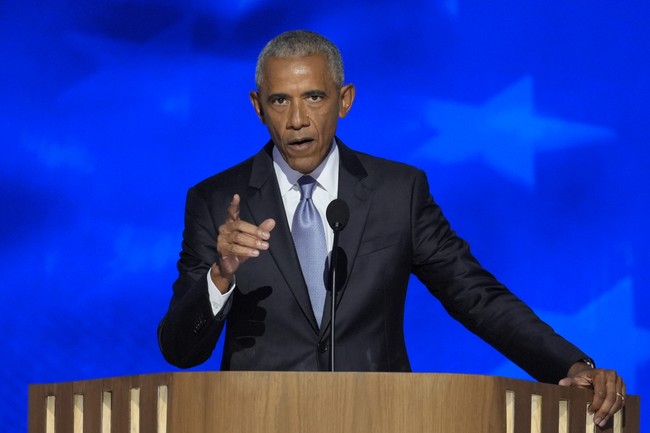
We are seeing a major change as Black and Hispanic communities are starting to reject old ideas that say you should support someone just because they share your skin color, instead of your values. Even comments from former President Obama aren’t having the same impact they used to, which shows that people are starting to think differently.
Advertisement
There is still some unfairness in the system, but black people are becoming more aware. We are tired of being used as bargaining chips in a political game where we always seem to lose.
I believe this change could mean the end of identity politics. It’s time to let go of the belief that our identities decide our viewpoints and to focus on a political future based on core values.
Right now, we’re at an important point in politics, especially in the Black community. Recent comments from Barack Obama have brought attention to a long-standing issue: the expectation that people should support others simply because they share the same racial background. Obama suggested that Black men who don’t back a Black woman candidate are disloyal to their race, which highlights the problems with identity politics. This way of thinking limits political involvement and creates a sense of reliance on left-leaning political leaders.
However, many blacks are starting to move away from these old ideas. As noted by members of Project 21, many Black men are realizing that their political choices don’t have to be based on race, but rather on their personal values and the policies that truly affect them. They are starting to see that race should not automatically align them with progressive ideas.
P. Rae Easley boldly states, “Race is dead in the United States of America,” showing a strong awakening among many Black Americans. This change is not simply a reaction against blame culture in identity politics, but rather a shift towards a more united American identity, one that goes beyond race and seeks common goals of freedom and justice.
Advertisement
Additionally, critics like Andre Barnes and Pastor David L. Lowery point out the failures of past policies, particularly in cities led by leaders of color. The idea that having “black faces in high places” should automatically mean improvement has been challenged by the reality that conditions for the Black community have not improved, despite their support for certain candidates. This disappointment is causing many young Black men to shift towards conservative views, embracing ideas of personal responsibility and good economic practices while questioning traditional policy approaches.
But the real problem with identity politics is that it oversimplifies people by reducing them to just their race, rather than recognizing their individuality. Stone Washington observes that young Black men are rejecting the belief that their political decisions must favor a particular racial group. Instead, they are choosing to make decisions based on thoughtful analysis and how policies affect their daily lives.
It’s important to acknowledge that while we see this shift, identity politics isn’t going away immediately. As Bukky Ogunyode explains, its roots are deeply embedded in American politics. Still, the current trend indicates that communities are beginning to value principles more than skin color, which could signal a decline in the old ways of thinking that dictate political loyalty based on appearances rather than beliefs.
Melanie Collette’s insights about both Black and Hispanic communities moving away from traditional narratives highlight an expanding desire for political discussions based on values. This shows that people are more aware of being used as pieces in the political game.
Advertisement
In the end, the changes we are seeing are uplifting. They point towards a hopeful future where people, regardless of race, can support policies that benefit them, based on values like opportunity, responsibility, and self-determination. Let’s embrace the potential move away from identity politics and look forward to a future where what we believe in is shaped by our values instead of our identities—this is what a healthy democracy should be built upon.
Project 21 Ambassador Craig J. DeLuz has almost 30 years in public policy and advocacy. He currently hosts a daily news and commentary show called The RUNDOWN. You can follow him on X at @CraigDeLuz.

